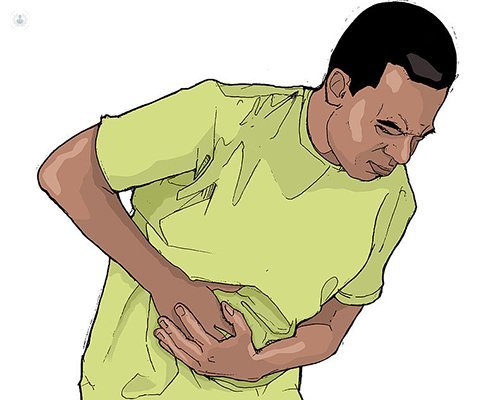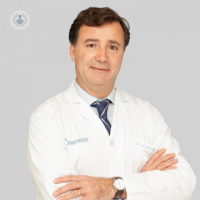What conditions can suffer the pancreas and gallbladder?
Written by:
What pathologies do biliopancreatic disorders comprise? What does it consist on?
Biliopancreatic diseases can be divided into two major groups, the pathologies of the bile duct and gallbladder and the pathologies of the pancreas. In general, each group of diseases can be divided into two large groups: neoplastic or non-neoplastic.
The non-neoplastic are the most frequent and their cause is usually associated with the presence of stones in the gallbladder or in the extrahepatic biliary tract that can provoke inflammatory processes such as biliary colic or acute pancreatitis. These inflammatory processes can be complicated by infections such as cholangitis or acute cholecystitis.
What symptoms does acute pancreatitis involve?
The fundamental symptom in acute pancreatitis is abdominal pain that is associated with an elevation more than double the normal value of amylase that is determined in a blood test. The most frequent causes of acute pancreatitis are either stones in the biliary tract or the intake of massive or continuous alcohol.
Acute pancreatitis can be complicated by infections of the pancreatic tissue that can provoke fever and may affect other vital organs such as the lungs and kidneys so it is necessary for a correct hospitalization treatment since its severity can oscillate from a mild process that improves in few days to a serious process that may even have mortality risk.
What is your treatment?
The fundamental treatment of acute pancreatitis is the intestinal rest to avoid working the pancreas by suspending the feeding by mouth and initially instituting sera and subsequently if necessary enteral nutrition is initiated by tube. On the other hand the specialist in Digestive System should control the pain with analgesics.
Once past the acute phase should be raised if the cause is the presence of stones in the gallbladder programmed gallbladder surgery (cholecystectomy) and if the cause is alcohol, abstention completely from intake of alcoholic beverages.
Should it be operated in all cases?
It is generally not necessary and only requires surgery in the acute phase of pancreatitis in those patients who present complications such as infection of pancreatic necrosis secondary to severe inflammation of the pancreas that happens several days after the onset of the clinical picture.
At other times, pancreatic collections are called pancreatic pseudocysts that require drainage if they become infected or give symptoms and this approach can be performed either with less invasive endoscopic procedures or with surgery.
Finally, if the cause of pancreatitis is the existence of stones in the gallbladder, the gallbladder should be removed once the acute phase has been programmed.
Can it be prevented? What are your risk factors?
To prevent a new episode of acute pancreatitis, it is necessary to find out what causes acute pancreatitis and eliminate it. In the case of stones in the gallbladder should be operated on and avoid diets rich in fats that may trigger a new episode and in the case of alcohol abstinence absolute.
That is why a good diagnosis is essential with imaging tests such as ultrasound and abdominal CT and in cases where it is not clear to perform a biliopancreatic echoendoscopy to discard unseen stones in other imaging tests or alterations of the pancreatic gland.
Risk factors for developing acute pancreatitis are alcohol, tobacco, gallbladder stones, and diets high in polysaturated fats
What kind of diet should the patient undergo?
Once the oral diet is resumed, you should eat less and avoid fatty foods, and you should reintroduce all foods slowly and progressively.


